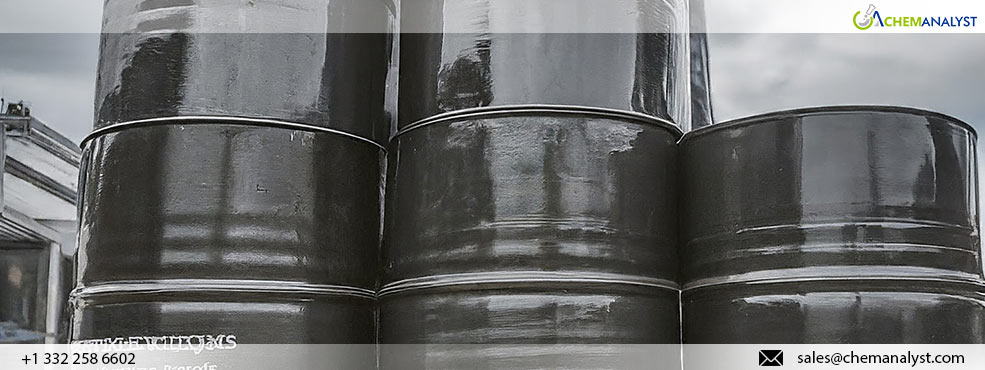Welcome To ChemAnalyst

Hamburg, Germany: The 2-Ethylhexyl Acrylate market in Germany is experiencing sustained stability, primarily due to a balanced supply-demand dynamic. This stability in the 2-Ethylhexyl Acrylate market is influenced by the country's stagnant economy, which has dampened activity in the downstream coatings and construction sectors, leading to a decline in orders for the commodity. Furthermore, this reduced demand for 2-Ethylhexyl Acrylate was satisfactorily fulfilled by the existing inventory levels preventing any supply shortages. Additionally, the ongoing summer holidays across Europe have contributed to a lull in market activities, further supporting the stable market sentiments for 2-Ethylhexyl Acrylate in Germany. This combination of factors has helped maintain equilibrium in the 2-Ethylhexyl Acrylate market, ensuring consistent pricing and availability.
In Germany, the 2-Ethylhexyl Acrylate market maintained its stability during the week ending on August 30, 2024, with prices steady at USD 1765/MT (FD-Hamburg). However, the production cost of 2-ethylhexyl Acrylate has been declining due to a continuous drop in the prices of the feedstock 2-ethyl hexanol, while acrylic acid prices remain stable. Demand for 2-Ethylhexyl Acrylate from downstream Coating and Construction enterprises has been moderate, and the existing inventory levels of 2-Ethylhexyl Acrylate have been sufficient to meet this demand satisfactorily, further supporting the stable market conditions.
In terms of the downstream sector, Germany's construction sector is projected to shrink significantly, driven by rising interest rates, which have led to a decline in building permits and soaring construction costs. These challenges have pushed several major developers into insolvency, further exacerbating the sector's downturn. The impact of these factors is expected to reshape the construction landscape in Germany over the next year. Activity has declined across all three construction sectors, with housing seeing the most significant drop and experiencing the sharpest contraction rate. While commercial activity and civil engineering also decreased, they did so less markedly over the past nine and three months, respectively. Nonetheless, these reductions were still significant. Additionally, new orders for 2-Ethylhexyl Acrylate continued to decline, influenced by the ongoing traditional summer holidays across European regions, adding to the sector's challenges.
Recently, Clark Builders, a division of Turner Construction Company, has been awarded a contract by Alberta Infrastructure to lead the expansion and renovation of the Red Deer Regional Hospital. This project represents a major investment in healthcare infrastructure, aimed at addressing the growing needs of the central Alberta community. Clark Builders will collaborate with DIALOG, a renowned architectural firm known for its innovative healthcare design solutions. This partnership builds on their successful track record, including projects like the Gene Zwozdesky Centre at Norwood, Grande Prairie Regional Hospital, and Glenora Park.
In terms of the economy, Germany is currently facing stagnation, with disappointing second-quarter growth and declining confidence sentiment indicators reflecting its position as the growth laggard of the eurozone. The German economy has essentially reverted to the state it was in a year ago. The European Central Bank's current interest rates suggest that a restrictive monetary policy is still in place, with any potential rate cut in September contingent upon further economic data over the next six weeks. This situation underscores the ongoing challenges within the German economy and its broader impact on the eurozone.
According to ChemAnalyst, the 2-Ethylhexyl Acrylate market in Germany is expected to see an upward trend, driven by anticipated increased demand for 2-Ethylhexyl Acrylate from downstream coating and construction enterprises. Analysts are optimistic about the upcoming quarter, forecasting a potential economic recovery in Germany towards the end of 2024.
We use cookies to deliver the best possible experience on our website. To learn more, visit our Privacy Policy. By continuing to use this site or by closing this box, you consent to our use of cookies. More info.
